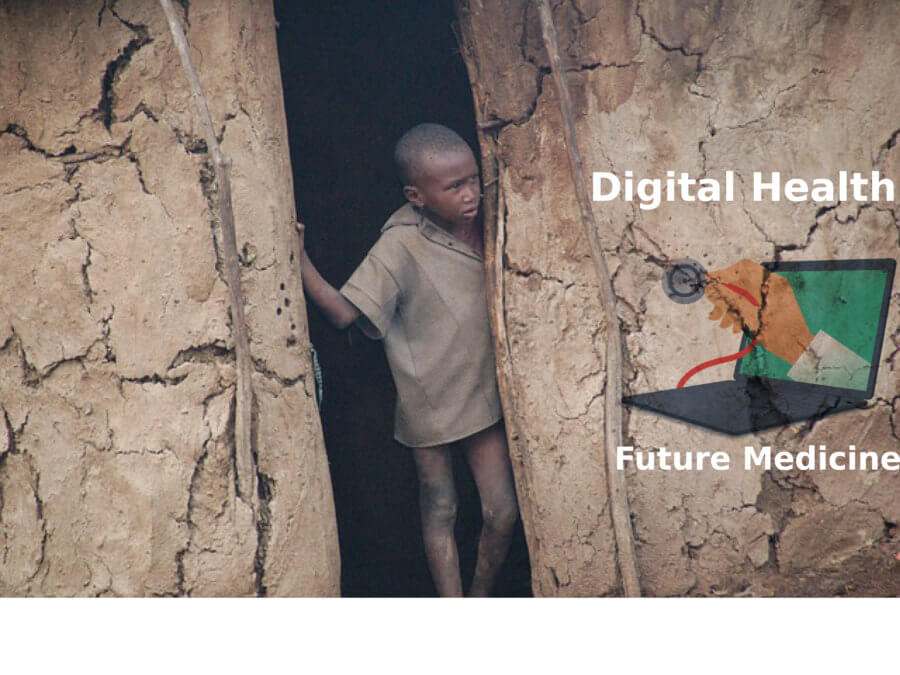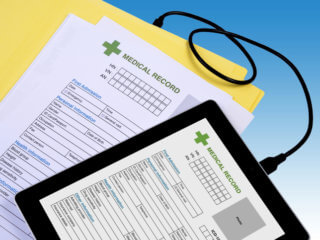The exponential growth of digital health sector in Rwanda
The current state of the health care system in Rwanda
Rwanda has experienced an incredible recovery from abject devastation and painful chaos. What’s even more remarkable, is its progress and advancement in healthcare system operation and service delivery. The government has contributed immensely to this development; expenditures on health care have increased from 3.2 percent in 1998 to 9.7 percent in 2008; a considerable 6.5% increase. Also, it has adopted a health care insurance system which ensures an equitable healthcare service with over 90% coverage reach of its population (The Lancet). The chart below shows Rwanda’s improved status in reducing child mortality, which is one of the most critical parameters of a country’s health care system.

Image courtesy of The Atlantic
Health insurance scheme
This scheme’s foundation is community-based. It centres on the involvement of the members/locals of a Rwandan community in a premium payment plan. On the one hand, each member of an average household gets to pay just two dollars, and on the other hand, the cost quadruples for a wealthy family. This system is called a sliding scale system. It ensures that the sick members of the society get a chance at health care service for free.
Internationally, Rwanda has been recognized for her health care system evolution. It is one of the countries successful in its adoption and practice of the UHS – universal healthcare system.
Digital health companies who have transformed Rwandan healthcare
Babylon and mobile health
In July 2016, Babylon, a British telemedicine firm in conjunction with the Rwandan government ministries of health, youth and ICT, launched a mobile-based healthcare scheme at the trade exhibition in Aikido, Kigali.
This program is focused on easy and quick access to live medical doctors and medical professionals via a mobile device.
Apps are available for download on smartphones. Features phones are not left out, a USSD code (*881#) for consultation purpose is available. Put together; this reduces the disadvantageous effects of the shortage of doctors and health personnel. It’s cost-effective; citizens pay less for consultation, get to pinpoint symptoms and connect with doctors for medical advice.
Zipline and drone services
Zipline, (a Silicon Valley company) kick-started its operations in Rwanda in October 2016.
This firm employs the use of drones in the delivery of health packages and products such as blood needed for transfusions and vaccines. In some cases, a community might not have access to screened blood due to distance issues and unavailability of a needed blood type.
Zipline is instrumental in delivering this product in a very timely fashion. In a country where over two million of its populace lacks access to primary healthcare, this service is just what’s needed to get the job done. Furthermore, remote clinics in Rwanda and rough roads that are hard to move through are problems that this company solves. Additionally, they offer benefits such as a decrease in stock-outs and efficient delivery at affordable prices. Over twenty health centres and clinics in Rwanda have access to zipline’s drone service.
Kasha, Afya Med, and mTiba are some of the other startups in Rwanda in the health insurance and healthcare sector. Kasha was the winner of the Rwanda round of the Seedstars World competition. In general, Africa has been slower than the rest of the world in encouraging startups, and Rwanda is no exception, but in recent years, especially with Seedstars rounds being organised in every country, things are looking up. The names and details above tell us that health insurance startups may not be so many now, but things are moving in the right direction. Rwanda had launched its Vision 2020 Program, which envisages making Rwanda a knowledge-based middle-income country with science and technology as a cross-cutting influence.
Is Rwanda becoming the testing market for first world technology?
As a country with an underwhelming 12 million populace and minimal exportable natural resources, the Rwandan government has made sure to focus on the service industry. Tech industry in particular.
Technology is a major focal point of the Rwandan government policies. ICT has become a valuable resource and economy booster to the nation.
Already, a hundred million dollar fund was invested by the government to build a broadband or fibre network infrastructure over a 2,796-mile vast land. 4G Internet coverage over the entire country makes it easier for technology developments to spring up in various Rwandan communities.
In October 2016, the Rwandan government formed a partnership with Zipline, a Silicon Valley-based tech company to deliver blood and vaccines to hospitals and clinics via drones. Before the arrival of the Zipline, most hospitals outside of Kigali would have to travel several times a week to procure blood from the primary source in Kigali.
Barrett Nash, a co-founder of Safetmotos, describes Rwanda as being the best place in sub-Saharan Africa to launch an ICT business. The startup success story of Zipline is a pointer to the fact that any tech-related company searching for a market to grow in, can launch in Rwanda.
Foreign business nationals can easily obtain entrepreneur visa for tech start-ups in a short time span, at no cost and online. More so, Rwanda is secure, and the corruption level is almost non-existent. Ranked 1st in Africa by world bank for business ease, Rwanda remains a shining example for the rest of Africa. In Kigali, there are places like kLab, and FabLab established in 2012, just within the government ICT park. They provide free adequate space for tech entrepreneurs to invent and innovate jointly.
Rwanda’s government takes centre stage in making the country, an attractive environment to launch tech start-ups. With so much ongoing progress, the government has made plans to invest another hundred million dollars in technology.
Challenges being faced by digital health startups in Rwanda
Though Rwandan digital tech start-ups have been successful, specific challenging factors slow down instead of accelerating their growth. Some of them are;
- Investment challenges: A struggling economy and lack of natural products for export create a financial problem for the Rwandan nation. To grow and establish a start-up accurately, health tech start-ups cannot rely on government funding but have to source for foreign investment and buy-ins.
- Regulatory challenges: For a fact, the health tech industry is steeped in complex regulations that present hurdles for tech entrepreneurs. By its very nature, startups highlight quick response as one of their benefits. But because there are no manufacturing facilities in Rwanda, almost all medicines are imported from India or China, which often creates a problem of stockouts. The speed of response of a startup would be of no use if patients are unable to get medicines on time. In a report from the Government of Rwanda (Health Sector Policy), they themselves list out several challenges faced by healthcare in Rwanda, including insufficient integration between central and local health service providers. Thankfully, the Rwandan government is working fervently to ensure that it’s policies favour the growth of digital health start-ups.
- Legal challenges: Health tech startups have a lot of access to personal data which raises privacy concerns. Dealing with data protection can be difficult for all parties involved.
Conclusion
Over 11 million Rwanda have access to not only healthcare in its live form but also in digital. This is because foreign-owned start-ups such as zip line, and Babylon have found a home and market in this sub-Saharan nation. And, they continue to grow and make a tremendous impact on the health of Rwanda people. Partly responsible for this success is the country’s government.
What they have done to turn around the health care of its citizenry, is fantastic. Drones are carrying much needed screened blood and mobile devices with healthcare apps; examples of how much the Rwandan healthcare system has grown.
The nation is already at the forefront of African digital health advancement. Initiatives, schemes and future investments bound to move the country forward are underway. Not surprising is its significance in the African alliance of digital health networks. It’s going to be a model of how African states can benefit from the ICT industry.
From the current look of things, the future of Rwanda digital health sector is blazing.
Image credit:

















